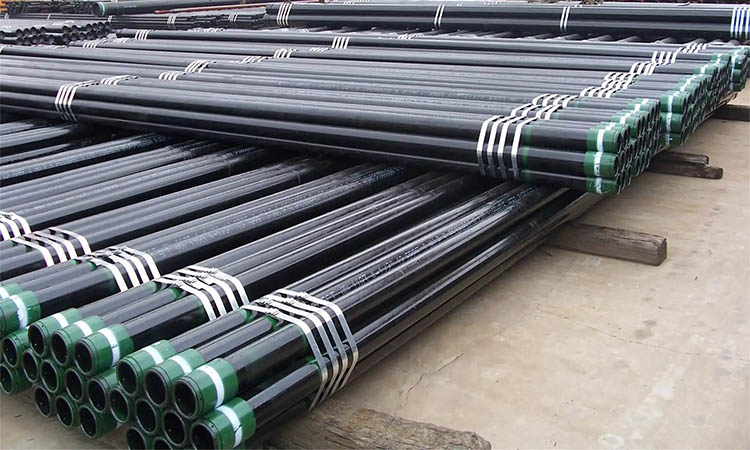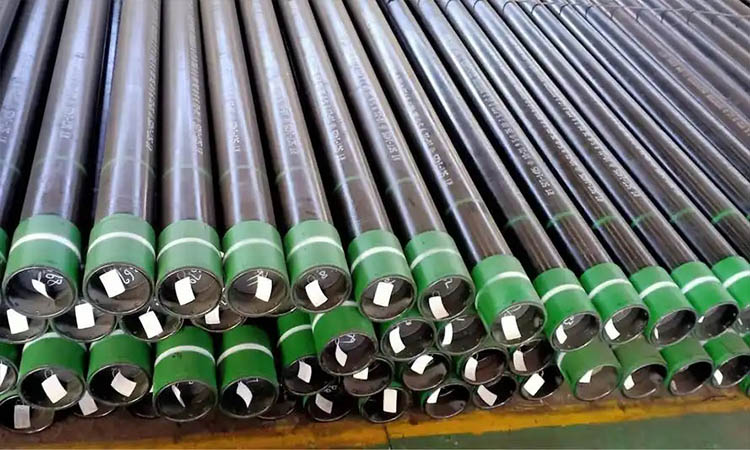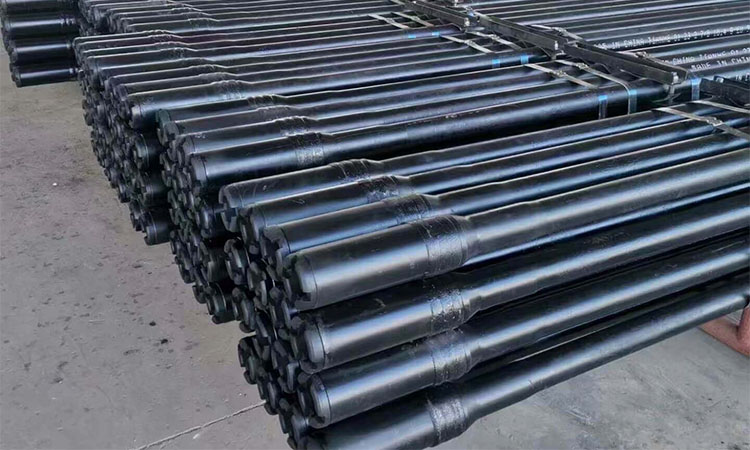How to choose oil casing?
What is oil casing?
Oil casing is a steel pipe used to support the well wall of oil and gas wells. It is mainly used to support the well wall during the drilling process and after the completion of the well to ensure the normal operation of the entire oil well after the drilling process and completion. Oil casing is a large-diameter pipe that is inserted into the wellbore and fixed with cement to help the wellbore separate the rock layer and prevent the wellbore from collapsing. At the same time, it ensures the circulation of drilling mud to facilitate drilling and mining.

Choosing suitable oil casing needs to consider the following key aspects:
1. Well condition analysis
Geological conditions
Understand the hardness, stability and presence of faults in the formation. For example, in soft formations, casing with good anti-squeezing performance needs to be selected; while in hard rock formations, more attention should be paid to the wear resistance of the casing.
For formations containing corrosive media, such as high-sulfur oil and gas fields, special material casings with good corrosion resistance, such as anti-sulfur casing, should be selected.
2.Well depth and well pressure
Well depth directly affects the pressure that the casing is subjected to. Deep wells need to select high-strength casing to withstand greater formation pressure. For example, ultra-deep wells may require casings with higher steel grades, such as P110 or even higher.
Calculate the compressive strength of the required casing based on the expected bottom hole pressure. At the same time, consider the various working conditions during drilling, such as the impact of excitation pressure and suction pressure on the casing.
3.Temperature conditions
High-temperature wells need to select casings that can maintain stable performance in high-temperature environments. Some special high-temperature wells may require the use of alloy casings with high-temperature resistance or casings that have undergone special heat treatment.
Understand the geothermal gradient and determine the heat resistance requirements of the casing material based on the bottom hole temperature. For example, in some high-temperature steam drive wells, the casing needs to be able to withstand temperatures of up to several hundred degrees Celsius.
4. Casing performance parameters
Material and steel grade:
Common casing materials include carbon steel, alloy steel, etc. The J55 steel grade in carbon steel is suitable for general medium and shallow wells and has a good cost-effectiveness; while alloy steel grades such as N80 and P110 are suitable for deep wells and complex well conditions, with higher strength and better corrosion resistance.
Select the appropriate steel grade according to the well conditions and cost budget. At the same time, pay attention to the chemical composition and mechanical properties of the material to ensure that it meets relevant standards such as API.
Dimensions:
Accurately measure the wellbore size and select the appropriate casing outer diameter and wall thickness. The outer diameter of the casing should match the borehole size to ensure smooth entry into the well, and the annular gap between the casings should be considered for cementing operations.
The selection of wall thickness should be calculated based on the well pressure and casing strength requirements. Generally speaking, high-pressure wells need to choose thicker wall casing to improve their pressure resistance.
Connection method:
The main connection methods of oil casing are threaded connection and welding connection. Threaded connection is the most common method, and the reliability and sealing of its connection are crucial.
Select a thread type that meets the standards, such as API standard threads, and ensure the processing accuracy and quality of the threads. Before connecting, the threads should be inspected and cleaned to ensure the firmness and sealing of the connection.
For some wells with special requirements, such as high-pressure gas wells, welding connection may be required. At this time, the quality and reliability of the welding process need to be ensured.

5. Quality certification and manufacturer selection
Quality certification:
Choose casing products with relevant quality certifications, such as API certification. API certification is an internationally recognized quality standard for oil casing. Certified products have undergone rigorous testing and review in terms of materials, performance and production processes.
Check the product's quality inspection report to understand whether its various performance indicators meet the requirements. The quality inspection report should include chemical composition analysis, mechanical property testing, dimensional accuracy testing, etc.
Oil casing supplier:
Choose an oil casing supplier with good reputation and rich experience. Sino Mechanical Equipment is a Chinese supplier specializing in oil drilling equipment and drilling tools.


